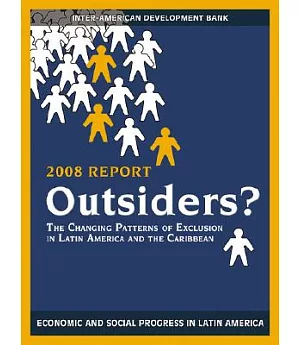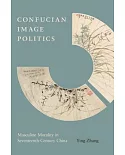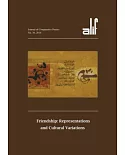Despite decades of reform and global integration, many people in Latin America claim they are worse off. Why do they lack productive jobs? Why do they sit on the political sidelines, deprived
of the ability to influence the government policies that could improve their lot? Why are they the most common victims of rising crime and violence? Are these people Outsiders?
Social exclusion is an inefficient and dysfunctional social, political, and economic process by which individuals and groups are denied access to opportunities and quality services to live
productive lives outside poverty. They are excluded not only for lack of resources, but often because of discrimination, unemployment or low-productivity jobs, chronic illness, geographic
location, or cultural identification.
This book argues that democratization, macroeconomic stabilization, and globalization have disrupted the traditional labor-market-based paths of integration based on public and formal
employment and made those left behind more vulnerable to the traditional forces of discrimination and exclusion. Thus, “modern” fragmentation forces expand the impact of the traditional forms
of discrimination to groups traditionally considered part of the mainstream, making exclusion a more visible and widespread phenomenon.





















